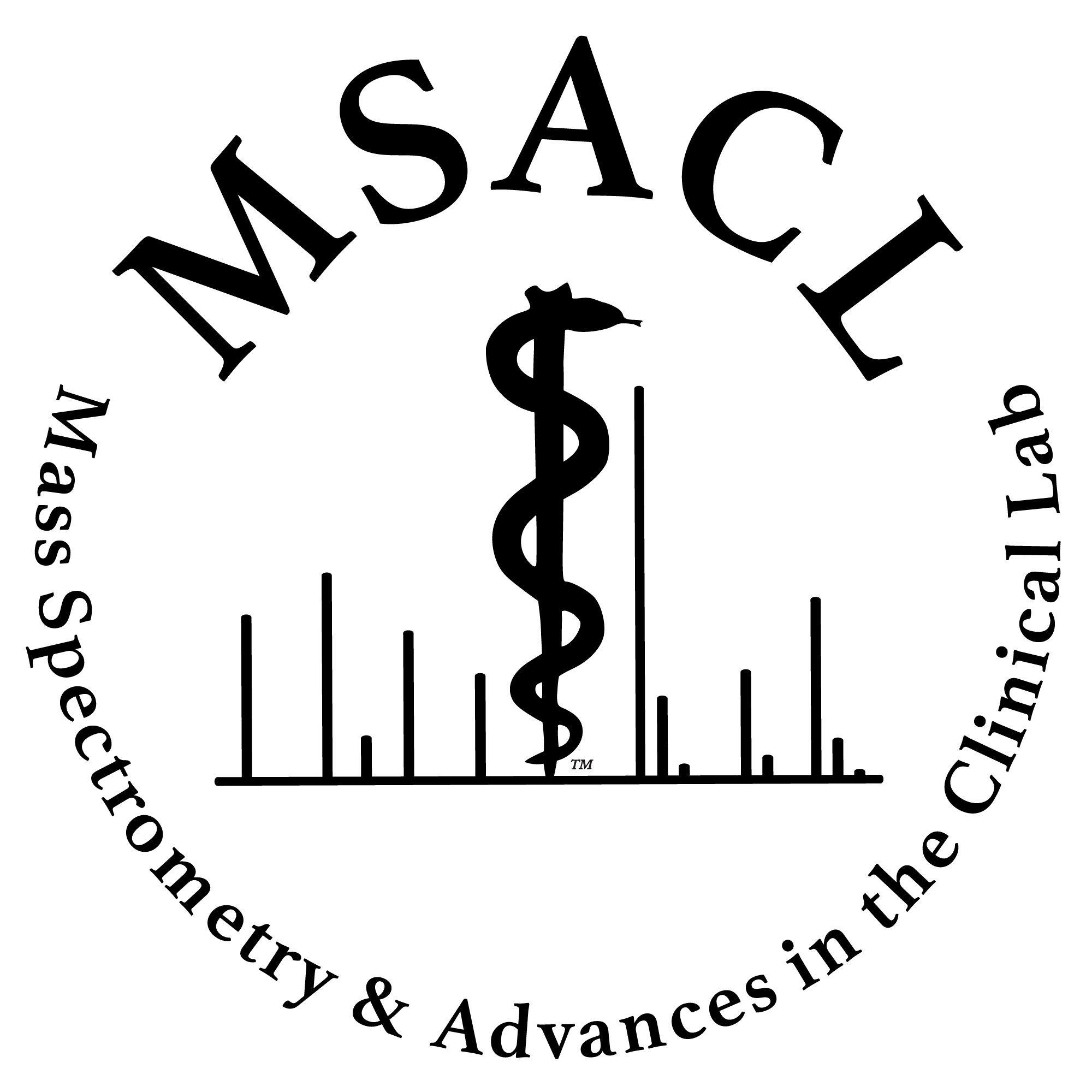MSACL 2023 Abstract
Self-Classified Topic Area(s): Assays Leveraging MS > Proteomics > Precision Medicine
|
|
Poster Presentation
Poster #86b
Attended on Wednesday at 12:30
|
|
 A Path From Discovery to a Targeted Proteomics Approach for the Verification and Validation of Tissue-derived Biomarkers in Coronary Artery Diseases A Path From Discovery to a Targeted Proteomics Approach for the Verification and Validation of Tissue-derived Biomarkers in Coronary Artery Diseases
Chi D.L. Nguyen (1), Austin L. Seal (3), Annie Moradian (1), Esthelle Hoedt (2), Weston R. Spivia (1), Stephen A. Whelan (1), Mitra Mastali (2), Sarah J. Parker (2), Susan Mockus (1), Jennifer E. Van Eyk (2), David M. Herrington (3)
(1) Precision Biomarker Laboratories, Cedars Sinai Medical Center, Los Angeles, California 90048, United States
(2) Heart Institute & Advanced Clinical Biosystems Research Institute, Cedars Sinai Medical Center, Los Angeles, California 90048, United States
(3) Department of Cardiovascular Medicine, Wake Forest University, Winston-Salem, North Carolina 27101, United States

|
Chi Nguyen, PhD (Presenter)
Precision Biomarker Laboratories Cedars-Sinai Medical Center Los Angeles |
|
|
|
|
|
|
Abstract INTRODUCTION: Over the past decades, there has been significant improvements on mass spectrometry (MS) - based technology, such that proteomics is now a gold-standard for biomarker research including discovery, analytical validation, and clinical validation. Conventionally, discovery proteomics results in a tremendous amount of information which is valuable not only in the discovery of biomarkers but also in characterizing the chemical properties of those biomarkers. In particular, the discovery MS data contains not only the relative quantification information of proteins, which facilitate the decision on biomarkers, but also about the relative elution profile of peptides, the mass peptide fingerprint spectral information, the collection of most responsive peptides and defined modified peptides, as well as the information about the background of your target matrix. This valuable information can be applied in the development of targeted proteomics approaches focusing on characterizing those biomarkers in a much larger cohort with more reliable quantification information. The biological model of this study is based on coronary artery diseases (CAD), the most common type among the heart diseases, and is one of the leading causes of death in our current time. One major challenge with current therapeutic approaches for CAD is the lack of an early diagnostic tool, which can dramatically impact treatment outcomes.
OBJECTIVES: In this study, we describe in detail the path from collecting and utilizing the comprehensive information from various sources of discovery proteomics analysis to the creation of the targeted proteomics assays for the verification and validation of biomarkers in application on coronary artery disease (CAD).
METHODS: There has been a lot of effort invested in biomarker discovery utilizing MS based approaches. From the data independent acquisition (DIA) analysis of approximately 200 tissues biopsies from CAD patients, a collection of 36 potential tissue-derived biomarkers was achieved. These proteins were then searched against the plasma spectral library information derived from over 200 DIA measurements of both naïve and depleted plasma samples for their detection ability, spectral information, and relative elution profile. Based on this information, a targeted proteomics assay could be developed in a more effective and straightforward process. The targeted assay was evaluated in a small cohort of 42 plasma samples derived from female donors, ages from 52 to 76 years old with CAD, and 26 healthy matched controls.
RESULTS: 28 proteins out of the 36 potential biomarker proteins could be detected in plasma samples with a minimum of one unique peptide. Among them, 14 proteins show significant differences between case and control and 5 proteins have strong predictive power (AUC >= 0.8).
CONCLUSION: This study illustrates a more efficient workflow to develop a targeted proteomics approach from all the possible discovery data sources relevant to the disease of interest. Furthermore, the confirmation of 5 potential tissue-derived biomarker proteins showing high predictive values in plasma samples of CAD cohort demonstrate the potential utility of using these proteins as diagnostic biomarker panel for the early detection of CAD.
|
|
Financial Disclosure
| Description | Y/N | Source |
| Grants | no | |
| Salary | no | |
| Board Member | no | |
| Stock | no | |
| Expenses | no | |
| IP Royalty | no | |
| Planning to mention or discuss specific products or technology of the company(ies) listed above: |
no |
|

